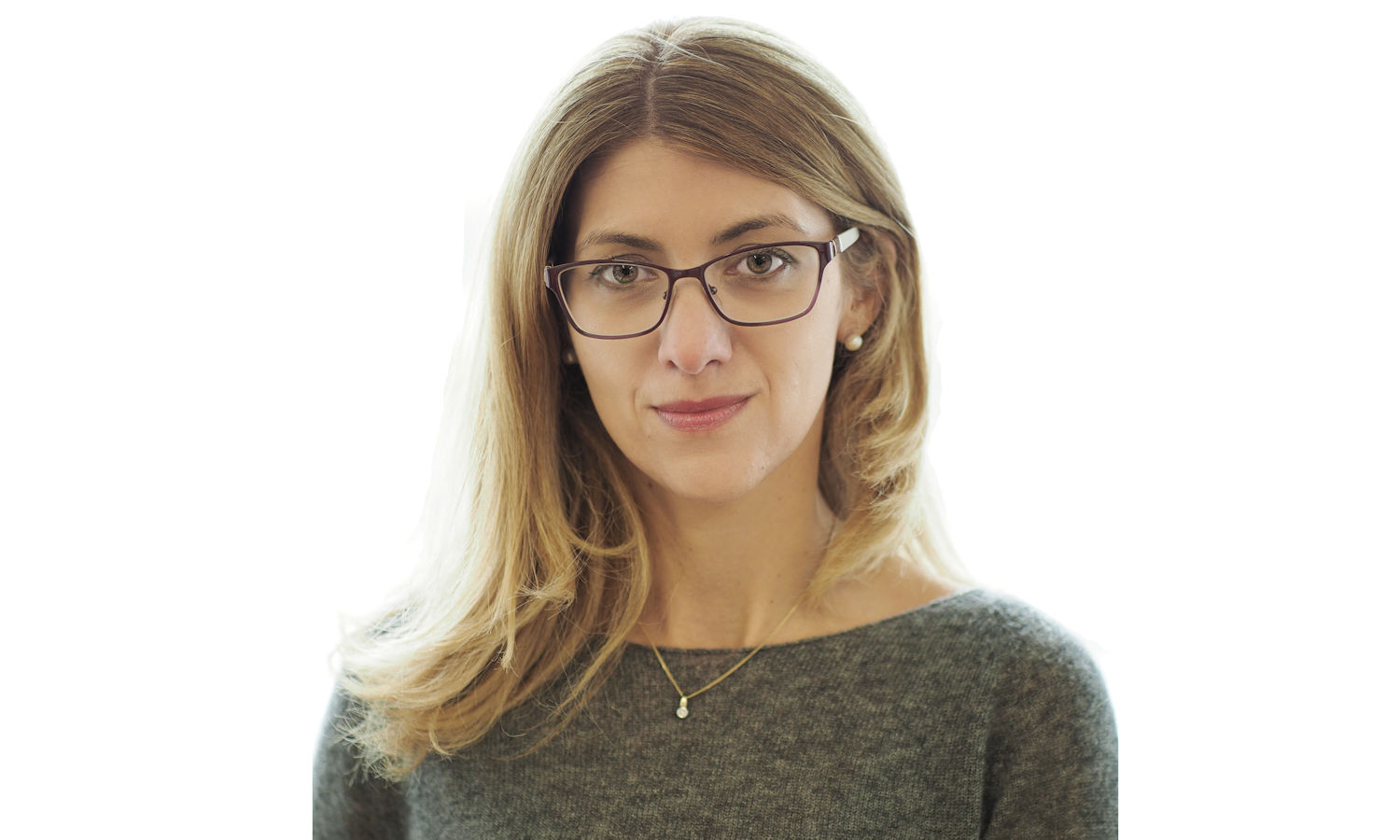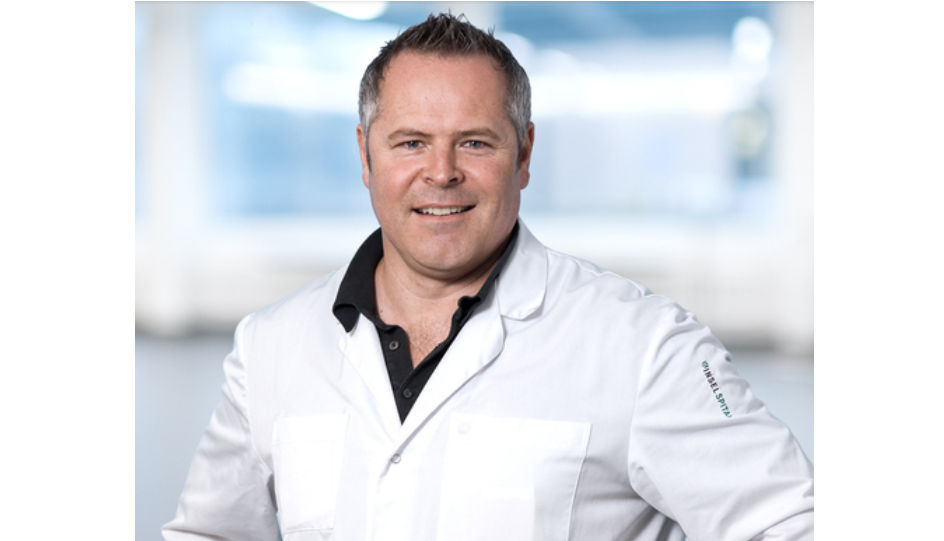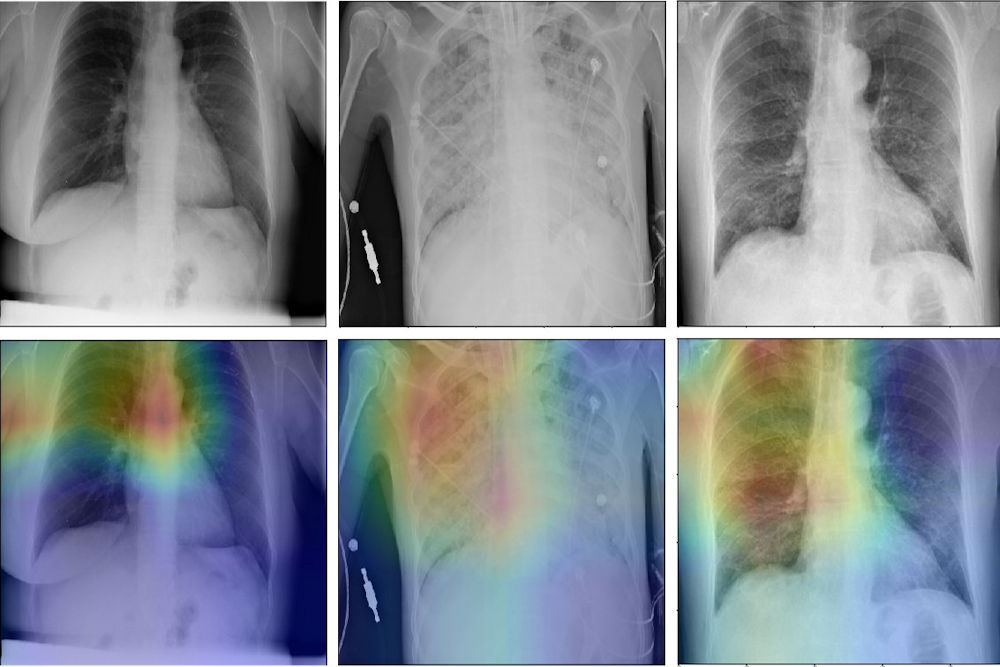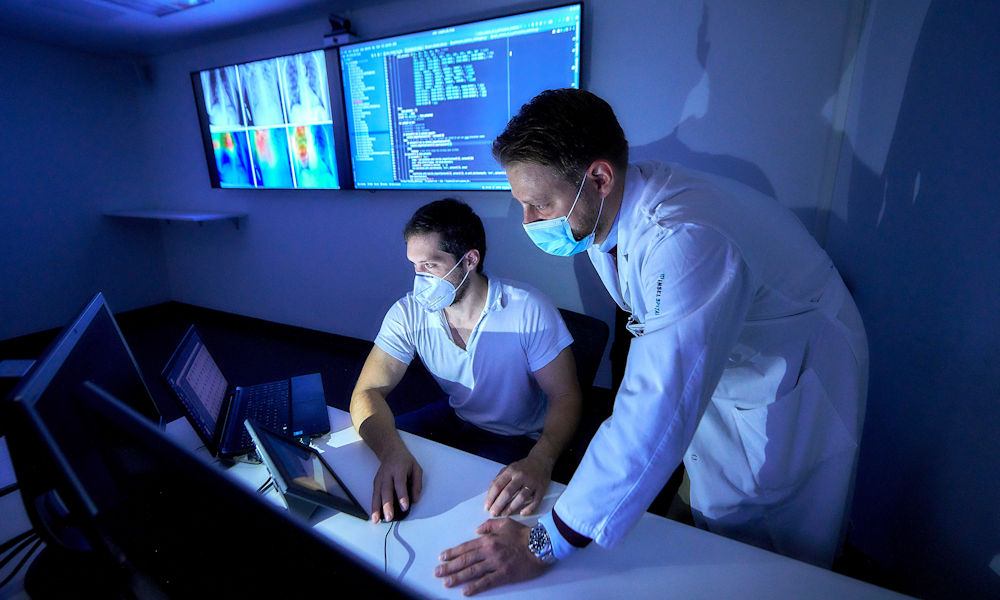AI X-ray analysis detects Covid-19 more reliably
A team of researchers at Inselspital, Bern University Hospital, and the ARTORG Center for Biomedical Research at the University of Bern has developed a new chest radiography image analysis for the detection of Covid-19. In the process, they taught a computer algorithm various diagnoses based on 8000 X-ray images. The researchers compared this artificial intelligence (AI) with standard, diagnostic annotation by radiologists. Especially for distinguishing Covid-19 from non-Covid-19 lung disease, AI provided significantly more reliable results.
The University of Bern and Inselspital, Bern University Hospital, are investing into consolidation and expansion of their leading position in the field of artificial intelligence (AI) in medicine. In mid-November, the establishment of the Center for Artificial Intelligence in Medicine (CAIM) was announced. Now, a study on Covid-19 detection has been published, which illustrates and emphasizes the importance of AI in medicine as a rapidly deployable solution to avoid overburdening healthcare systems during the global pandemic.
What was investigated?
First, an AI algorithm was trained on 7988 cases, 258 with Covid-19 and 5451 with other forms of pneumonia. To compare the diagnostic reliability of AI vs. radiologists, 100 cases each were selected as test cases, and in a blinded run eleven radiologists with various levels of expertise independently read the testing data set to come to a diagnosis.
Clear results: AI surpassed radiologists
Diagnoses in three categories: Normal Lung, Other Pneumonia, and Covid-19 Disease were cross-checked. In all three categories, AI analyzed 94% of results correctly versus 61% of diagnostic accuracy by radiologists on average. More importantly, correct diagnostic results for Covid-19 diagnosis differed significantly (AI 97% vs. radiologists 53%). Prof. Dr. Andreas Christe, Head of Radiology at the Inselspital, comments: "Radiologists are usually good at detecting abnormalities. Here they also were almost as good as the AI. But in classifying pneumonia into Covid-19 and non- Covid-19 cases, the computer was vastly superior. This suggests that the computer can detect something in the images that escapes the human eye. More attention will be paid to this aspect in upcoming research. Through the synergy of AI-assisted image analysis and physician expertise, we get the most out of the new technologies."
Interdisciplinary collaboration ensures rapid clinical implementation
Various national and international research groups are investigating ways to advance the diagnostics and prognosis of Covid-19 disease in interdisciplinary collaboration. In this, the research team of ARTORG and Inselspital can capitalize on the strength of the Bern medical location. Prof. Dr. Stavroula Mougiakakou, Head of the research group AI in Health and Nutrition at the University of Bern explains: "In our research group, AI experts and clinicians have been working together for seven years now. Combining the medical expertise with domain competence in AI accelerates the translation of our research into clinical practice. The impact of AI will change the way we diagnose diseases in the very near future."
To develop and validate the Bernese method further, the team will conduct a multicenter study in close collaboration with the University Hospitals of Zurich and Lausanne and several other European universities. Combining X-ray imaging and AI could, for example, also help to triage patients into different risk groups for more severe or milder COVID-19 progression at initial diagnosis.
Publication details:Fontanellaz, Matthias; Ebner, Lukas MD et al.: A Deep-Learning Diagnostic Support System for the Detection of COVID-19 Using Chest Radiographs. A Multireader Validation Study. Investigative Radiology, 30 November 2020, https://journals.lww.com/investigativeradiology/Abstract/9000/A_Deep_Learning_Diagnostic_ Support_System_for_the.98745.aspx |
Insel GruppeThe Insel Gruppe is Switzerland’s leading group of hospitals for university and integrated medicine. It offers comprehensive health care based on groundbreaking quality, research, innovation and education. The six Insel Gruppe hospitals (Inselspital, Aarberg, Belp, Münsingen, Riggisberg and Tiefenau) carried out around 864 000 outpatient consultations and treated about 65 000 in-patients in the financial year 2019. The Insel Gruppe employs almost 10 800 members of staff from 100 nations. It provides training for a large number of professions and is the most important institution for the further training of young physicians. |
ARTORG Center for Biomedical Engineering ResearchThe ARTORG Center for Biomedical Engineering Research is the University of Bern's interdisciplinary Center of Excellence for medical technology with a strong link to the clinical departments of Inselspital, Bern University Hospital. Through its unique constellation as an engineering department within a medical faculty, ARTORG has been delivering a decade of ambitious biomedical engineering research, teaching and development across a wide variety of clinical areas. With its clinical partners ARTORG tackles unmet clinical needs in diagnosis, treatment, monitoring and rehabilitation. ARTORG partners on projects at the intersection between technical and medical disciplines and industry and has longstanding experience in translation, clinical validation and commercialization of MedTech research in Bern and beyond. |
Center for Artificial Intelligence in Medicine (CAIM)The Center for Artificial Intelligence in Medicine is a research, teaching and translation platform for medical technology that uses AI to deliver better care to patients and facilitate the work of doctors and nurses. CAIM capitalizes on the unique constellation in Bern that joins players from the scientific, healthcare and industry domains. It will be inaugurated in January 2021 as a Center of the University of Bern’s medical faculty and the Inselspital, Bern University Hospital, with the University Psychiatry Services (UPD) and the Swiss Institute for Translational and Entrepreneurial Medicine, sitem-insel, as partners. Part of Bern’s initiative for digitalization in healthcare, CAIM is a virtual center connecting engineers, physicians and scientists in the area of AI in medicine and providing them with resources and access to infrastructure. By bundling transdisciplinary know-how from the Bern Biomedical Engineering Network, it promotes and expands projects dedicated to the potential of AI technology for healthcare. CAIM will foster commercialization of AI technology innovation, support start-up incubation and create sustained value through best in class research, translation and economic growth. |
Source: Insel Gruppe
2020/12/11





